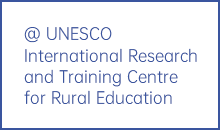Overview of CLCs
The Community Learning Centre (CLC) Programme was launched by UNESCO in 1998 in the framework of the UNESCO Asia-Pacific Programme of Education for All (APPEAL). Community learning centres (CLCs) are local educational institutions, usually set up and managed by local people to provide various learning opportunities and skills training with the support of the government, NGOs, and private sectors. CLCs can provide literacy, post literacy, life and vocational skills, adult education, education for disadvantaged groups (such as women, people with disabilities), knowledge of protecting the environment and heritage, survival skills for the elderly and so forth. The learning programmes in CLCs vary according to local needs and contexts in each country. As part of UNESCO centres, CLCs in China are supported by governments at all levels.
The purpose of CLCs is to promote human development by providing opportunities and skills training for lifelong learning to people of all ages in local communities. CLCs support empowerment, social transformation and improvement of the quality of life. They are established by the communities and for the communities themselves. CLCs reach out to a broad range of beneficiaries, such as early childhood, pre-school children, out-of-school children, women, youth, the elderly, people with disabilities. CLCs are also critical aspects of delivering quality skills and lifelong learning programmes at the country level.
The CLC programme implementation is aligned with the Belém Framework for Action adopted at the Sixth International Conference on Adult Education (CONFINTEA VI) in 2009 and the Marrakesh Framework for Action adopted at the Seventh International Conference on Adult Education (CONFINTEA VII) in 2022, which provided strategic directions for the global development of adult education within the perspective of lifelong learning and recognized the critical role of CLCs in lifelong learning, aligned with UNESCO’s global strategy and SDG4 priorities.
UNESCO implemented the Community Learning Center programme in China in 2003, targeted community-based non-formal education delivery mechanism, in partnership with the Ministry of Education of People's Republic of China, Chinese National Commission for UNESCO, China Adult Education Association (CAEA), UNESCO Category II Centre International Research and Training Centre for Rural Education (INRULED), etc. 51 rural CLCs and 33 urban CLCs have been established in China as of 2022.
Community Learning Centres are imperative for the achievement of quality education and skills development, to contribute to alleviating poverty, promoting learning cities, and to building equitable, sustainable and knowledge-based societies.
- Download:
- Community Learning Centres in China.pdf













